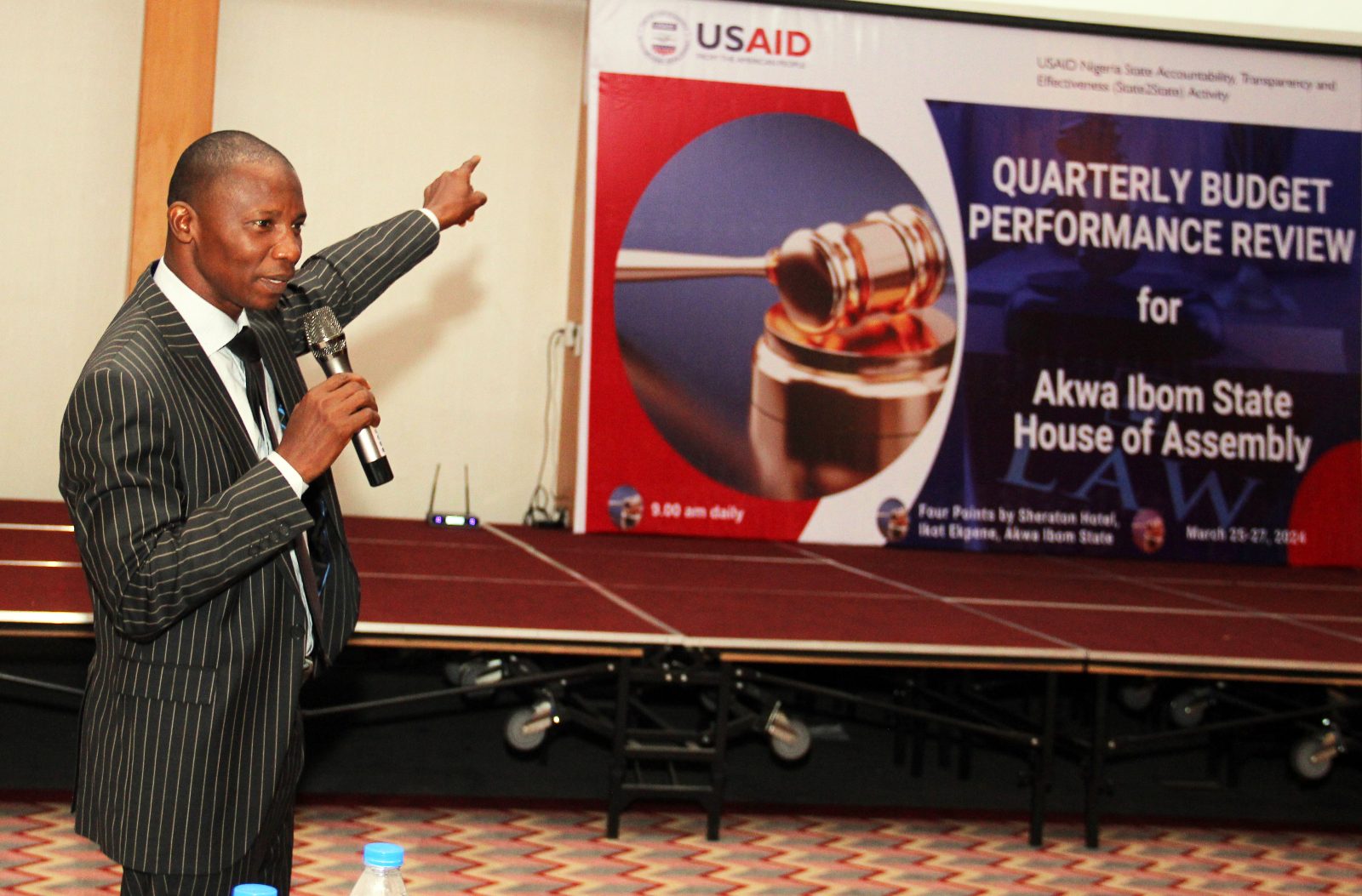USAID State2State, FRB Task State Assembly on importance of Monitoring Implementation of Community Charter of Demand in Akwa Ibom

By Ekemini Simon
The United States Agency for International Development (USAID) State Accountability, Transparency and Effectiveness, (State2State) Activity in Akwa Ibom State together with the Akwa Ibom State Fiscal Responsibility Board (FRB) has called on the Akwa Ibom State House of Assembly to monitor the implementation of the community needs across the State as contained in the Community Charter of Demand (CCD).
The call was made during the recently held 3-Day quarterly engagement with the Akwa Ibom State House of Assembly on Budget Performance and Public Finance Management (PFM) organised by USAID State2State Activity in Akwa Ibom.
In a presentation by the Director General of the Akwa Ibom State Fiscal Responsibility Board, Mr. Victor Edet, he noted that the CCD which was introduced in Akwa Ibom State by USAID State2State Activity in September 2021 is a tool designed to harvest inputs from all categories of stakeholders such as village, ward, Clan, Development Councils, Civil Society Organisations, Traditional Rulers, Market Community, Media, Professional Bodies among others into the Budget, Medium Term Expenditure Framework (MTEF), Medium Term Sector Strategy (MTSS ), and Development Plan of the State and Local Government.
Edet, who said that the Community Charter of Demand has been available in the budget since 2022 called on State lawmakers to monitor its implementation as the representative of the people and in response to their oversight role.
Speaking on the benefits of Community Charter of Demand, the Director General said it is an effective way to involve citizens in each stage of government’s work, from planning and budgeting to monitoring the performance of public services.
He noted that it provides an opportunity for citizens and communities to articulate and present their development needs to the government for consideration and possible inclusion in the budget.
Edet added “It provides the platform for the government to ensure consistency of government policies with the development priorities of the citizens. It facilitates open, transparent and inclusive governance because Stakeholders have been given the opportunity to select what they want into the development plan of the government.
” It brings the government closer to the citizens through participation in project selection and exchange of information. It takes project selection into the budget away from closed doors and demystifies the budget thereby fostering ownership.”
The Director General pointed out that the administration of Community Needs Collection Template is focused on sensitising Stakeholders to understand the broad requirements of budget information needed by citizens and its product will be citizens compliance budget.
He said this will enable the government to disclose information, key items and ideas of budget to civil society and the media and it will enable the public to know critical components of budget policy, revenue and expenditure, borrowing, deficits and financing gap, major expenditure heads and expected results from the budget.
Edet called for the sustainability in the usage of the CCD template and deepened interest by the members of the Assembly .









